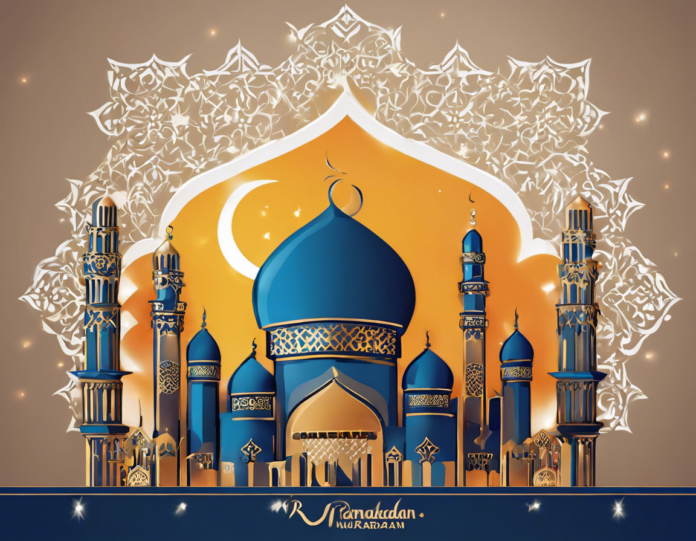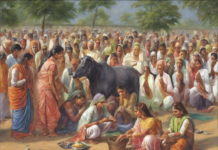During the holy month of Ramadan, Muslims around the world observe a period of fasting, prayer, reflection, and community. It is a time for spiritual growth, strengthening of faith, and compassion towards others. To inspire and uplift your soul during Ramadan 2024, here are 10 inspirational Ramadan quotes that encapsulate the essence of this sacred month:
1. Hadith on Fasting:
“Whoever fasts during Ramadan out of sincere faith and hoping to attain Allah’s rewards, all his past sins will be forgiven.” – Prophet Muhammad (peace be upon him)
2. Importance of Ramadan:
“Ramadan is not just about fasting, it is about purifying the soul, focusing on devotion, and turning towards Allah with sincerity.” – Unknown
3. Patience and Virtue:
“Patience is the key to success in this world and the Hereafter. Be patience, Allah is with those who are patient.” – Quran, Surah Al-Baqarah (2:155-157)
4. The Power of Dua:
“Make dua – it’s a powerful weapon of the believer, a shield against trials, and a light in the darkest times.” – Unknown
5. Gratitude and Blessings:
“Sometimes the blessings of Allah are not in what He gives, but in what He takes away. He knows best.” – Unknown
6. Self-Reflection:
“Ramadan is the month to strengthen your faith, purify your heart, and cleanse your soul. Take this opportunity to renew your intentions and seek forgiveness.” – Unknown
7. Charity and Compassion:
“The best charity is that given in Ramadan.” – Prophet Muhammad (peace be upon him)
8. Forgiveness and Mercy:
“Ramadan is the month of mercy and forgiveness. Seek forgiveness for yourself and forgive others with an open heart.” – Unknown
9. Unity and Brotherhood:
“In Ramadan, we come together as one community, breaking our fast together and praying side by side. Let this spirit of unity and brotherhood extend beyond this blessed month.” – Unknown
10. Hope and Renewal:
“As the crescent moon heralds the arrival of Ramadan, let it also symbolize the renewal of faith, hope, and blessings in your life. May this Ramadan bring you peace and prosperity.” – Unknown
Frequently Asked Questions (FAQs) about Ramadan:
1. What is the significance of fasting in Ramadan?
Answer: Fasting in Ramadan is one of the Five Pillars of Islam and is observed from sunrise to sunset. It teaches self-discipline, empathy for the less fortunate, and a closer connection to Allah.
2. Can children, elderly, pregnant women, and individuals with health conditions fast during Ramadan?
Answer: Children, elderly individuals, pregnant or nursing women, and those with health conditions are exempt from fasting. They can make up for missed fasts at a later time or provide an alternative form of charity.
3. What is the importance of Taraweeh prayers during Ramadan?
Answer: Taraweeh prayers are special evening prayers performed during Ramadan. It is a Sunnah practice and offers an opportunity to recite the Quran, seek forgiveness, and strengthen faith.
4. How can one make the most of Laylat al-Qadr (the Night of Power) during Ramadan?
Answer: Laylat al-Qadr, the Night of Power, is considered one of the holiest nights in Islam. To maximize its blessings, Muslims are encouraged to engage in extra prayers, supplications, and seek forgiveness throughout the night.
5. What are the benefits of giving Zakat (charitable donations) during Ramadan?
Answer: Giving Zakat during Ramadan not only fulfills one of the Five Pillars of Islam but also purifies wealth, helps those in need, and brings blessings and mercy into one’s life.
6. How can one maintain spiritual growth and connection with Allah after Ramadan ends?
Answer: To maintain spiritual growth post-Ramadan, one can continue to engage in daily prayers, read and reflect on the Quran, perform acts of charity, seek beneficial knowledge, and surround themselves with a supportive community.
7. Is it permissible to perform Umrah (lesser pilgrimage) during Ramadan?
Answer: Performing Umrah during Ramadan is highly recommended as it carries extra rewards and blessings. However, it is essential to ensure that all necessary rituals and guidelines are followed accordingly.
8. How can one support and show solidarity with Muslims observing Ramadan?
Answer: Non-Muslims can show support and solidarity with their Muslim friends and colleagues by understanding and respecting the significance of Ramadan, participating in community events, offering greetings such as “Ramadan Mubarak,” and being mindful of dietary restrictions.
9. What are the etiquette and Duas (supplications) for breaking the fast (Iftar)?
Answer: It is Sunnah to break the fast with dates and water, followed by Maghrib (sunset) prayer. Duas such as “Allahumma inni laka sumtu wa bika amantu…” (O Allah, I have fasted for You and believed in You) are commonly recited at the time of Iftar.
10. How can one make the most of the last ten days of Ramadan?
Answer: The last ten days of Ramadan are particularly special, with Laylat al-Qadr hidden within them. To make the most of this time, engage in extra prayers, seek forgiveness, read the Quran abundantly, and intensify acts of charity and kindness.
May these quotes and FAQs serve as a source of inspiration, guidance, and enlightenment as you immerse yourself in the blessings of Ramadan 2024. Ramadan Mubarak!









